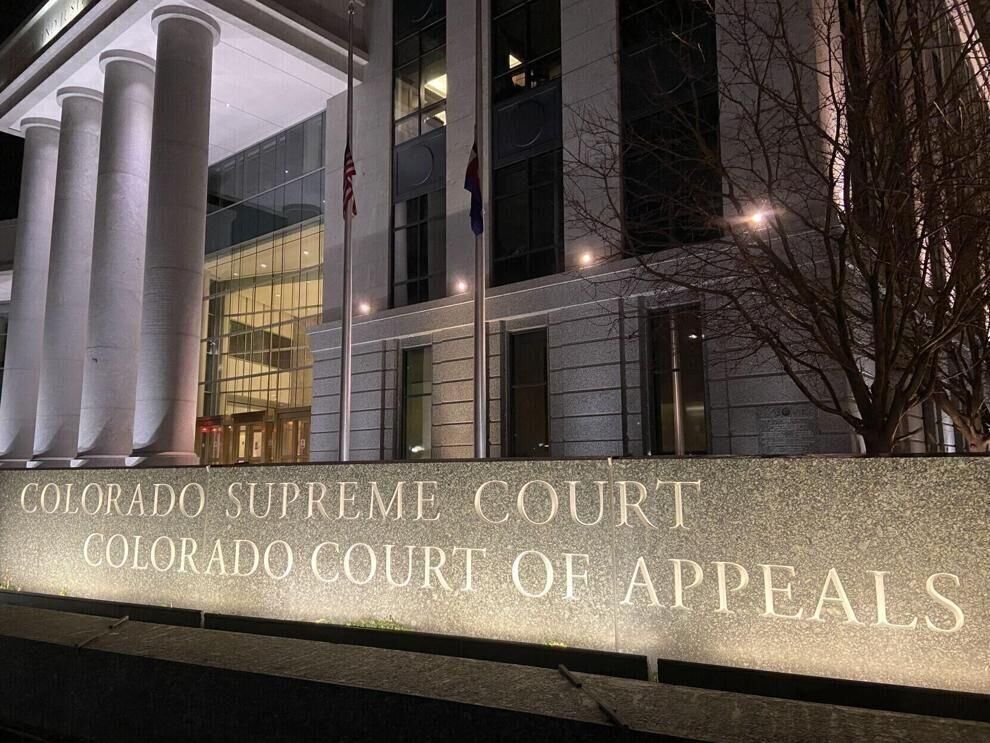Appeals court says trial judges cannot initiate probation revocation proceedings

An Arapahoe County judge went beyond his legal authority when he ordered a defendant’s probation officer to seek revocation of the man’s probation, Colorado’s second-highest court decided last week.
The three-judge panel for the Court of Appeals also took the unusual step of removing District Court Judge Ben L. Leutwyler from the case going forward. His directive to begin revocation proceedings against Richard Joseph Karwacki, and later being the one who decided whether to actually revoke Karwacki’s probation, created the appearance that Leutwyler was not a neutral party, concluded the panel.
“By ordering the probation department to file the complaint, rather than to simply review the letter alleging violations, the judge created an appearance of partiality,” wrote Judge Daniel M. Taubman in the Jan. 12 opinion.
Karwacki pleaded guilty in August 2018 to felony theft for stealing just under $100,000 from a friend. Karwacki had represented to the victim that he was developing a new business, but instead spent most of the money for unrelated purchases. As part of his sentencing, Karwacki agreed to pay $94,377 in restitution and received 10 years of probation.
However, Leutwyler quickly became frustrated with Karwacki’s dishonesty and attempts to evade punishment. Karwacki’s probation officer moved to revoke his probation, alleging Karwacki was noncompliant and had lied about being terminated from his job. Karwacki’s bankruptcy proceedings also interrupted his restitution payments to the victim.
Leutwyler was conflicted about the degree of punishment for the probation violation, but ultimately told Karwacki he would “give you a chance to keep” his new job by restarting Karwacki’s probation and only requiring weekend jailtime.
However, he explained to Karwacki’s probation officer, “I want as short a leash as possible because I’m convinced, Mr. Karwacki, you are manipulating everyone involved.”
In December 2019, the Arapahoe County Sheriff’s Office sent a letter to Leutwyler alerting him that Karwacki had failed to show up on four occasions to weekend jail. Without prompting, Leutwyler issued an order.
“The probation department is directed to review the attached letter and file a complaint for revocation of probation,” he wrote on Dec. 9.
Karwacki’s probation officer accordingly moved to revoke Karwacki’s probation, although he noted that, aside from the weekend jail violation, “the defendant has shown improvement complying with probation in other areas.”
Karwacki appeared before Leutwyler prior to the revocation hearing, where the judge told him he was “very inclined to revoke probation” and sentence Karwacki to prison. The hearing took place in December 2020, by which time Karwacki had accumulated additional probation violations and was arrested on a warrant.
Although Karwacki’s probation officer testified that Karwacki was a risk to the community, he conceded that Leutwyler’s order, and not the letter from the sheriff’s office, was the reason he moved to revoke probation. Based on that revelation, Karwacki’s attorney requested that Leutwyler recuse himself from deciding the revocation question.
“The probation department is an arm of the Judicial Department and the probation department does, in fact, work for the court,” Leutwyler responded in defending his involvement. “The Court views that as certainly not taking an active role in the case or indicating any kind of bias. Rather, the Court took efforts to ensure that the allegation could be heard.”
He added that his original order was a “neutral action” and declined to recuse himself. Leutwyler then found Karwacki had committed three probation violations and sentenced Karwacki to 12 years in prison.
On appeal, Karwacki argued Leutwyler’s initial order conveyed the judge’s belief that Karwacki violated his probation, even before hearing the evidence. Combined with his comments that he was “very inclined to revoke,” Leutwyler gave the impression he could not be fair in his ultimate decision.
“A neutral action would have been to forward the letter to probation for their review and investigation, allowing them to determine whether a complaint was warranted,” wrote public defender Jessica Sommer.
The Court of Appeals panel noted that Colorado law does not allow judges to initiate probation revocation proceedings. That responsibility lies with probation officers or the district attorney’s office. Because no appellate courts in Colorado had confronted this issue before, the panel relied on a 1992 decision from an Illinois court that held, under similar circumstances, a trial judge did not have the authority to act as Leutwyler did.
“This directive could cause a reasonable observer to have doubts about the judge’s impartiality, believing that he had already determined that Karwacki had violated the conditions of his probation,” wrote Taubman, a retired judge who sat on the panel at the chief justice’s assignment.
Even though the probation department is part of the judicial branch, the panel believed Leutwyler had created an appearance of impropriety by ordering the probation officer to file a complaint against Karwacki – a complaint which Leutwyler would later decide.
The panel vacated Karwacki’s prison sentence and ordered a different trial judge to take over.
The case is People v. Karwacki.














